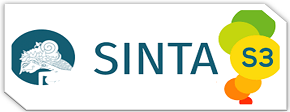Faktor Intrinsik dan Ekstrinsik Dimoderasi Motivasi Kerja Terhadap Kinerja Guru
DOI:
https://doi.org/10.30587/jurnalmanajerial.v8i02.2324Keywords:
Intrinsic, Extrinsic, Motivation, Teacher, performanceAbstract
Background – Competent teachers can produce quality education. The problem that exists is the number of teachers in schools who lack motivation, this is due to the low enthusiasm of teachers when teaching in several schools. In addition, teacher workloads that exceed the limit and lack of training to improve teacher skills also lead to a lack of teacher motivation. The solution is the need to increase work motivation from both extrinsic and intrinsic factors. Purpose – To find out the influence of instristic and extraneous factors moderated work motivation on teacher performance. Design/Methodology/Approach - This research method uses a causality research design. The population of the study was 86 junior high school teachers in Poncokusumo District. With the research sample 46 SMP teachers who have been certified. The approach used is quantitative with Moderated Regression Analysis (MRA). Result and Discussion - The results of data analysis state: (1) intrinsic factors affect teacher performance, (2) extrinsic factors affect teacher performance, and (3) moderated intrinsic and extrinsic factors affect teacher performance. Conclusion – The results of this study are the intrinsic and extrinsic factors which are moderated by motivation have a significant effect on performance. Motivation strengthens the relationship between intrinsic and external factors on teacher performance in junior high schools in Poncokusumo sub-district. Research Implications - This research has implications for the influence of intrinsic and extrinsic factors as well as motivation as moderation on teacher performance
References
Alderfer, C. 2016. Pembelajaran Peranan Motivasi dan Kemampuan Awal dalam Kegiatan Pembelajaran. Jakarta: Delia Press
Arikunto, Suharsimi. 2005. Metedologi Penelitian. Yogyakarta: Bina Aksara
Cholil, Muhammad. 2014. Pengaruh Kepemimpinan Kepala Sekolah dan Motivasi Kerja Terhadap Kinerja GuruDi SMP Muhammadiyah Ngawi. Media Prestasi Jurnal Ilmiah STKIP PGRI Ngawi. Vol 12: 92-101.
Danim, Sudarwan. 2002. Inovasi Pendidikan dalam Upaya Peningkatan Profesionalisme Tenaga Kependidikan. Bandung: CV Pustaka Setia.
Deci, Edward L., and Richard M. Ryan. 2008. “Self-Determination Theory: A Macrotheory of Human Motivation, Development, and Health.” Canadian Psychology/Psychologie Canadienne 49(3):182–85. doi: 10.1037/a0012801.
Decreuse, Bruno, and Pierre Granier. 2013. “Unemployment Benefits, Job Protection, and the Nature of Educational Investment.” Labour Economics 10.
Dye, Thomas R. 2012. Understanding Public Policy. USA : Prentice-Hall, INC., Englewood Cliffs, NJ.
Gunarsa, D.Singgih. 2008. Psikologi Olah Raga Prestasi. Jakarta : Gunung Mulia
Hamid, Djamhur. 2017. Pengaruh Motivasi dan Kemampuan Kerja Terhadap Kinerja Karyawan. Jurnal Administrasi Bisnis. Volume 1 Nomor 1.
Hariandja, Marihot Tua Efendi. 2002. Manajemen Sumber Daya Manusia. Jakarta: PT.Grasindo
Hasibuan, Malayu S P.2002. Manajemen Sumber Daya Manusia (edisi revisi). Jakarta : Bumi Aksara.
Hellriegel. 2016. Organizational Behaviour. Sebastopol : Alex Media Computindo.
Hernando, Hendrick. 2016. Determinan Motivasi Kerja : Tinjauan Faktor Instrinsik dan Ekstrinsik di PT. Kaltim Medika Utama Medika. Jurnal Media Studi Ekonomi. Volume 1 Nomor 1.
Ismail, Mohamad. 2010. Manajemen Operasional Sekolah. Bandung: PT Remaja Rosdakarya. Journal Administrasi Bisnis. Volume 4 Nomor 3 : 698-712.
Kabella, Dina Anindya. 2016. Analisi Tentang Pengaruh Profesionalisme Birokrasi Terhadap Kinerja Pegawai
Li, Nanyun, and Hyesook Park. 2019. “The Relationships of Self-Directed Learning Readiness and Motivation with the English Proficiency of Korean EFL Learners.” 29
Li, Ping. 2020. “Factors Influencing Learning Effectiveness of Educational Travel_ A Case Study in China.” Journal of Hospitality and Tourism Management 12.
Luthan, Fred. 2011. Perilaku Organisasi. Cetakan Keempat. Yogyakarta: Penerbit Andi Offset.
Mas’ud. 2017. Pengaruh Kompetensi Kepala Sekolah, Motivasi dan Kompetensi Guru Terhadap Kinerja Guru serta Implikasinya pada Kompetensi Lulusan. Kontigensi. Volume 5. No.2: 122-131.
Mintrop, Rick, and Miguel Ordenes. 2017. “Teacher Work Motivation in the Era of Extrinsic Incentives: Performance Goals and pro-Social Commitments in the Service of Equity.” Education Policy Analysis Archives 25:44. doi: 10.14507/epaa.25.2482.
Mulyana, E. 2006. Menjadi guru profesional. PT Rosda Karya, Bandung
Muskanan, Karel. 2014. Faktor Instrinsik, Faktor Ekstrinsik dan Motivasi Berprestasi. Jurnal Kebijakan Publik. Volume 5 Nomor 1 : 55-60.
Ningtyas, Nurcahyati Dwi Ayu. 2018. Pengaruh Motivasi Kerja Terhadap Kinerja Karawan Dengan Motivasi Islam Sebagai Variabel Moderasi. Jurnal Ekonomi Syariah. Volume 3 Nomor 2.
Robbins, Stephen 2006. Perilaku Organisasi (Organisasi Behaviour). Jakarta : PT. Prehalindo.
Sari, Oxy Rindiantika. 2018. Pengaruh Kepuasan Kerja Terhadap Kinerja Karyawan Dengan Organizational Citizenship Behaviour Sebagai Variabel Intervening. Jurnal Administrasi Bisnis. Volume 64 Nomor 1.
Sedarmayanti. 2009. Sumber Daya Manusia Dan Produktivitas Kerja. Bandung : Penerbit Mandar Madu
Shaw, George Bernard. 2018. Persaingan Masyrakat. Jakarta : Rajawali press
Siagian, P. Sondang. 2008. Manajemen Sumber Daya Manusia. Jakarta: Bumi Aksara
Subianto, Marianus. 2016. Pengaruh Gaji Dan Insetif Terhadap Kinerja Karyawan.
Suharsaputra, Uhar. 2016. Etika dan Profesi Kependidikan. Jogjakarta: Arruz.
Tiwari, Pragya. 2020. “Effect Of Extrinsic And Intrinsic Motivation On Teachers Job Performance.” 4.
Uno, H. B., & Lamatenggo, N. 2012. Teori kinerja dan pengukurannya. Jakarta: Bumi Aksara. 10.1109/ICOVET50258.2020.9230222.`
Yamin, Martini. 2006. Sertifikasi Profesi Keguruan di Indonesia. Jakarta: Gaung. Persada, hal 71. 1.
Yoo, Sun Joo, Seung-hyun Han, and Wenhao Huang. 2012. “The Roles of Intrinsic Motivators and Extrinsic Motivators in Promoting E-Learning in the Workplace: A Case from South Korea.” Computers in Human Behavior 28(3):942–50. doi: 10.1016/j.chb.2011.12.015.






























 P-ISSN: 2354-8592 __ E-ISSN: 2621-5055
P-ISSN: 2354-8592 __ E-ISSN: 2621-5055 
